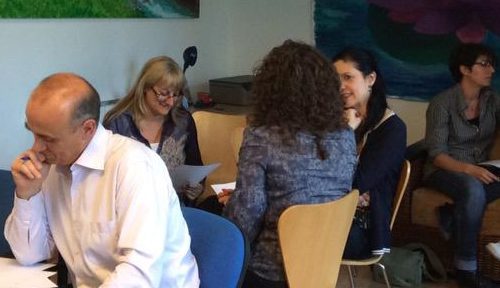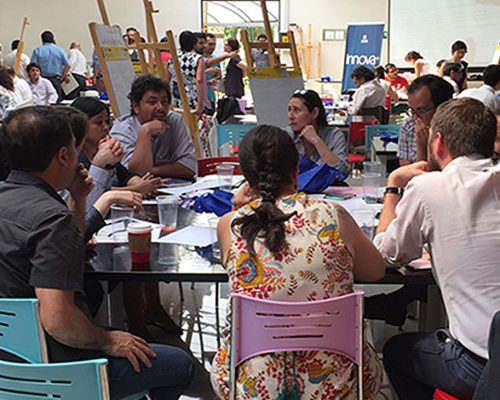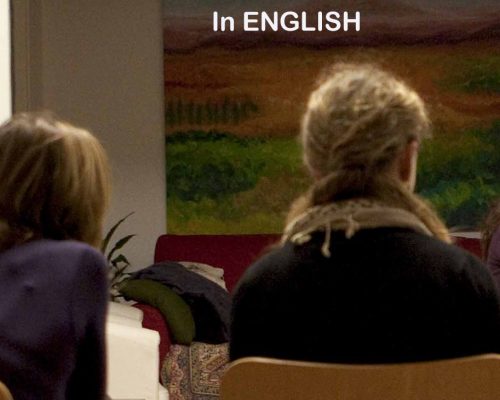Training in 21 hours divided into 7 modules taught by five senior professors and Appreciative Inquiry Practitioners. Each module includes a presentation by the professor, readings, practices.
New Edition: starting when you register. The synchronous schedule with the professors of this course is in accordance to each participant. The training is customized for your needs. Every session will be with you and one of the docents, once a week or every 10 days, so that you have time to study the lessons and practice. The practices plus reading and study time are around 2 to 3 hours per week.
Training requires an average of 21 hours dedication divided into 7 modules. Each module includes a recorded presentation by the professor, readings, practices to be carried out with the other participants and practices to be carried out with an external collaborator. The investment is 491,74 euros plus VAT
DATES: starting on November 6th at 6 pm. Following dates: November 20th and 27th, December 4th, 11th, and 18th. Closing dates to be decided with the participants.
We are in a time of considerable change in which organizations need to quickly change or even reinvent themselves. It is also a time when many people want to be more motivated by their work and want their work to have a broader social or economic purpose. We can help people do their jobs better by providing appreciative feedback and feedforward. Feedback is information about reactions or comments to the performance of a task, ideas, etc. of a person or team, which is used as a basis for improvement. Feedforward is to provide knowledge and ideas to improve the performance of a person or team on a task, ideas, etc. which are used to create the best possible solution.
Feedback and feedforward with a positive framework aim to promote personal and professional growth in the performance of a person or team and generate the best possible ideas or solutions in a given situation. The combination of feedback and feedforward with Appreciative Inquiry means that a person or team understands what they did well (feedback) and these future-oriented actions or ways forward are co-created, relational, and part of a whole system approach (through feedforward).
In this training, we will see how both feedback and feedforward can be better used, how to give and receive it and the advantages that both can bring to others from an appreciative intention. Receiving feedback is a gift, yet it is often not lived that way. Some people avoid feedback because it may seem critical and judgmental of the person to whom we are giving feedback, or we feel criticized and judged by the person giving us the feedback. People become defensive, insecure, and unwilling to listen.
Feedforward is about focusing on solutions and not mistakes, in the future and not in the past; in promoting growth, inspiration, and joyful engagement rather than feeling guilty, defensive, or complaining. At feedforward, we ask questions, so there is no value judgment: the opportunity is to find a way forward. For example, you might ask: What would you do differently next time based on your experience? The feedforward conversation creates a space for learning, co-creation and collaboration between two (or more) people, be it a leader, a manager or a manager of a team with their collaborators. If small group feedforward is considered, it fosters a conversation that leads the team to prosper and flourish.
This training will be given by the teaching team formed by: Anne Radford; Cees J. Hoogendijk ; Jackie Stavros; Joep C. De Jong; Miriam Subirana;











